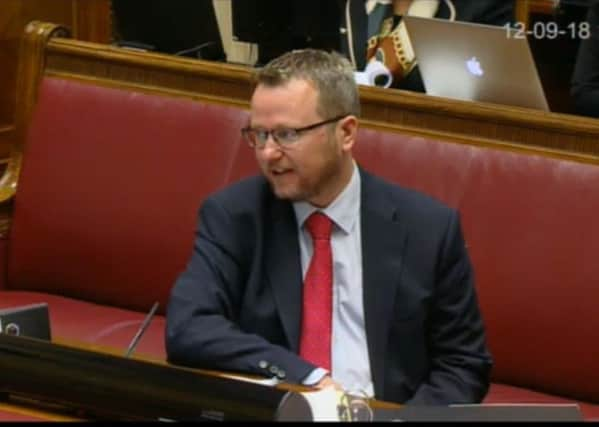Spad's belief Arlene Foster's adviser was trying to '˜neuter' RHI cost control


At one point, Dr Crawford, who was adviser to Arlene Foster, proposed via Mr Cairns a far less punitive form of cost controls which officials viewed as an attempt to stall the process.
Mr Cairns said that he now thinks that may have been an attempt by Mr Crawford to “neuter” the cost controls, something he speculated may have been due to his links to the agricultural industry.
Advertisement
Hide AdAdvertisement
Hide AdMr Cairns said that he became “somewhat of a message boy” for Dr Crawford and that he now regrets that he hid his fellow Spad’s involvement from officials.
Dr Crawford, who will give evidence again today, has denied that he acted as Mr Cairns says. In a statement to the inquiry published last night, Dr Crawford said: “I did not suggest seeking a delay to the date proposed for the introduction of tiered tariffs, at any time, to anyone, whether at an official or political level, nor would I have felt it appropriate.”
Mr Cairns told the inquiry how as attempts were being made to rein in the scheme Dr Crawford suggested that he meet David Mark, a senior figure in major RHI beneficiary Moy Park.
The inquiry has already revealed the deep and extensive contacts – both personal and professional – between Dr Crawford and senior Moy Park figures.
Advertisement
Hide AdAdvertisement
Hide AdHe said there was “a certain discomfort” at what was being suggested to him and he “didn’t believe it would be actually appropriate”.
Sir Patrick Coghlin highlighted that on at least two occasions Dr Crawford had said in an email to Mr Cairns that he should phone him to discuss the issue, something Sir Patrick noted meant that “there’s no written record of your conversation with him...so you didn’t make a note about it...and yet quite important things were being talked about in these conversations”.
Mr Cairns said: “That is correct, Mr chairman, and that is a deficiency”.
Sir Patrick asked: “Was that something that might happen quite frequently if...‘sensitive’ matters were being discussed; that there would be a resort to the telephone, rather than email or records?”
Advertisement
Hide AdAdvertisement
Hide AdMr Cairns said it was “just a reflection of the informality” but that on reflection it was “an appalling way of doing things”, adding: “People who had interests in this should have been sitting round the table.”